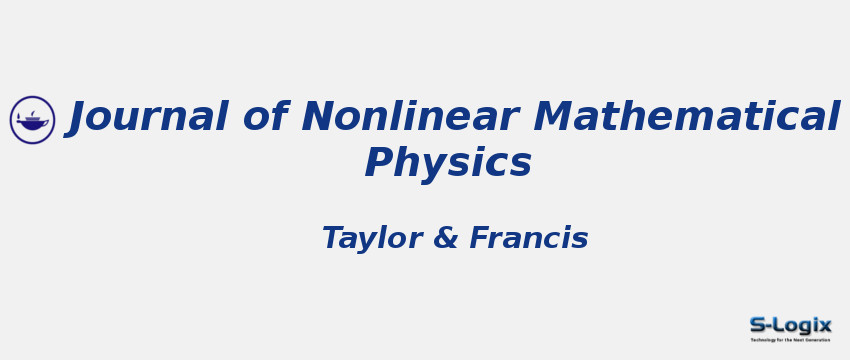Journal Home: Journal Homepage
Editor-in-Chief: Enrique G. Reyes
Print ISSN: 14029251
Electronic ISSN: 17760852
Abstracting and Indexing: Science Citation Index Expanded, Scopus
Imapct Factor 2024: 0.978
Subject Area and Category: Mathematics,Mathematical Physics,Physics and Astronomy,Statistical and Nonlinear Physics
Publication Frequency:
H Index: 46
Q1:
Q2:
Q3: Mathematical Physics
Q4:
Cite Score: 2.1
SNIP: 0.896
Journal Rank(SJR): 0.419
Latest Articles: Latest Articles in Journal of Nonlinear Mathematical Physics
Guidelines for Authors: Journal of Nonlinear Mathematical Physics Author Guidelines
Paper Submissions: Paper Submissions in Journal of Nonlinear Mathematical Physics
Publisher: Taylor and Francis Ltd.
Country: United Kingdom
